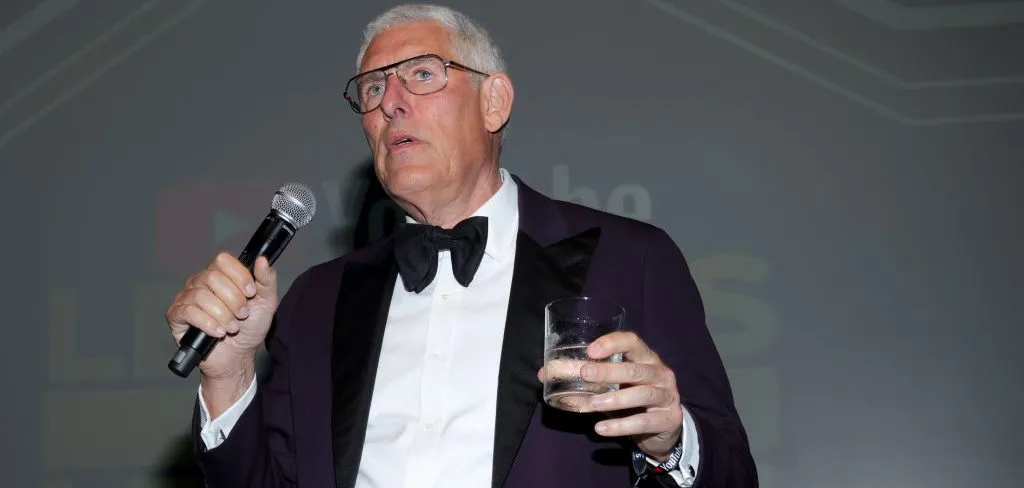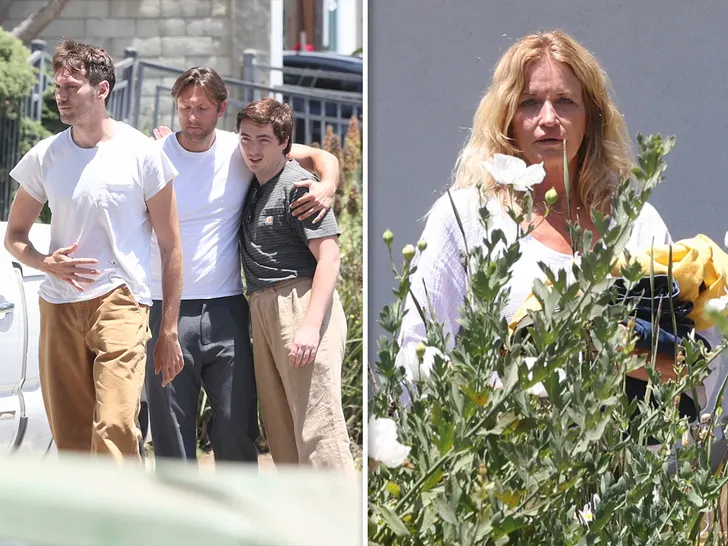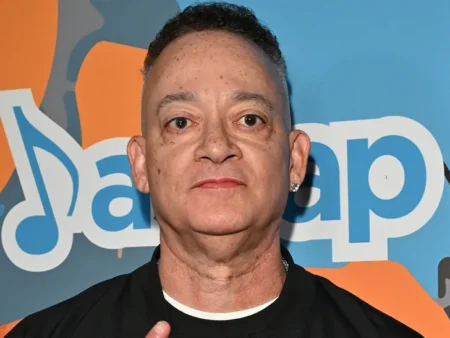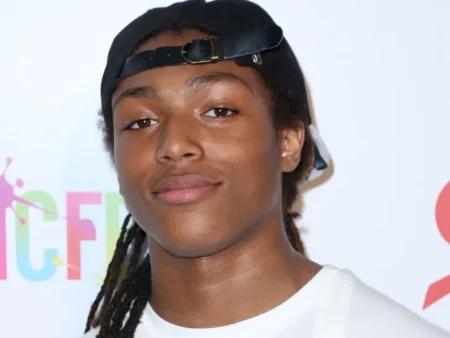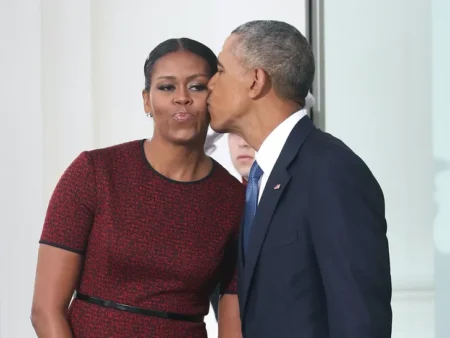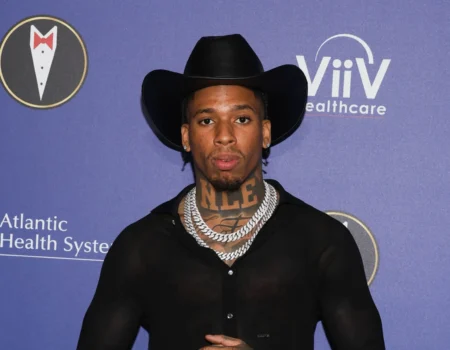Lyor Cohen Pens Open Letter to Kanye West: ‘You’ve Chosen to Spread Discord’ Amid Antisemitic Controversy
Lyor Cohen, the global head of music at YouTube and former CEO of Def Jam, has taken a strong stand against Kanye West’s recent antisemitic remarks in an open letter that condemns the artist’s use of hate speech and Nazi imagery. Cohen, who has had a long professional relationship with West, spoke out about the rapper’s harmful behavior and urged him to consider the consequences of his words, which have sparked outrage in Jewish communities and beyond.
In his letter, Cohen, who once worked closely with West during his time at Def Jam, expressed disappointment and concern for the artist’s increasingly inflammatory rhetoric. West, who has faced growing backlash for his controversial statements, has been widely condemned for identifying as a Nazi and promoting antisemitic beliefs through actions such as selling T-shirts featuring a swastika symbol. The recent Super Bowl ad promoting his webstore, which sells such merchandise, has only intensified the controversy surrounding him.
Kanye West’s Antisemitic Remarks Spark Outrage
West has been at the center of multiple controversies over the past several months, with his antisemitic comments drawing widespread condemnation from public figures, celebrities, and advocacy groups. His open identification with Nazi ideology, combined with his promotion of hate-filled merchandise, has made headlines and fueled a national conversation about the impact of celebrity influence on society. Despite being dropped by multiple organizations, including his talent agency, 33&West, West’s music and videos remain accessible on major streaming platforms, including YouTube, which has raised concerns about the platform’s responsibility in the face of rising hate speech.
Cohen’s letter urges West to take a long, hard look at the pain his words inflict on Jewish communities, as well as all those who stand against hate and division. “Be more sensitive to the pain your words inflict on Jewish communities and all those who stand against hate,” Cohen wrote, offering a plea for reflection and change. His message was not only directed at West’s actions but also at the broader responsibility that comes with the massive influence and reach West holds in the entertainment industry.
A Shock to Cohen: From Collaboration to Disappointment
In a candid interview with Variety, Cohen shared his shock and disappointment upon hearing West’s antisemitic remarks. Reflecting on his time working with the artist, Cohen admitted that while West had always been known for being outspoken and unfiltered, he had never witnessed any antisemitic behavior or negative comments directed at Jewish people during their professional interactions. “Never. Never. I always saw that he was loose with his feelings, but I never heard a negative comment toward me or Jewish people—at least not in front of me,” Cohen explained. “And I’ve spent a lot of time around him. I was shocked and disappointed.”
For Cohen, the change in West’s behavior was both unexpected and painful. The rapper’s recent actions marked a stark departure from the relationship they once shared, leaving Cohen heartbroken and angry over the harmful impact of West’s words. Despite their history, Cohen made it clear that he could not remain silent in the face of such harmful rhetoric.
The Historical Alliance Between Black and Jewish Communities
In his open letter, Cohen also spoke about the historical alliance between Black and Jewish communities, particularly in the world of music. He reminded West of the shared experiences and mutual support that have existed between these communities for decades, from the early days of jazz and blues to the rise of Motown and beyond. Music, Cohen emphasized, has always served as a bridge that unites diverse cultures and fosters understanding.
“The Jewish and Black experiences share a rich history of collaboration and mutual support,” Cohen wrote. “From the early days of jazz and blues to Motown and beyond, our communities have uplifted each other through music and culture.” Cohen called on West to reflect on this history and recognize the power of unity rather than division.
As one of the most influential figures in the music industry, Cohen urged West to use his platform to bring people together, rather than perpetuate harmful stereotypes and discord. “Your talent and influence could heal and inspire, but instead, you’ve chosen to spread discord and harmful stereotypes,” Cohen said, underscoring the weight of West’s actions and their far-reaching consequences.
The Consequences of Words: Antisemitism on the Rise
Cohen’s open letter highlights the urgent need to confront and address antisemitism, especially as hate speech continues to rise across the globe. West’s words, Cohen argued, cannot be dismissed as mere expression; they are dangerous and have real-world implications. As antisemitism has surged in recent years, particularly in the wake of global political tensions, it’s crucial for influential public figures like West to recognize their responsibility and the potential harm of their words.
Despite the public outcry and the widespread fallout from his statements, West has yet to fully apologize or take accountability for his actions. As the situation continues to unfold, Cohen’s letter serves as a reminder that celebrities are not immune from the consequences of their behavior and the words they choose to amplify.
The Power of Platforms: What Responsibility Do Streaming Services Have?
One of the central issues raised by Cohen in his letter is the role of platforms like YouTube in allowing West’s music and videos to remain accessible to the public. While West’s actions have led to him being dropped by numerous companies and talent agencies, his content continues to be available for consumption on major streaming services. Cohen has called on these platforms to take more responsibility in addressing hate speech and ensuring that harmful content does not thrive online.
The issue of content moderation has been a major topic of debate in recent years, particularly in relation to high-profile figures and the influence they wield over their audiences. Cohen’s plea to YouTube and other streaming platforms to take a stand against hate speech underscores the growing pressure on companies to balance freedom of expression with the need to protect vulnerable communities from harm.
The Road Ahead: Can Kanye West Redeem Himself?
As the fallout from Kanye West’s antisemitic remarks continues to unfold, many are left wondering if there is a path to redemption for the artist. While Cohen’s open letter offers a powerful condemnation of West’s actions, it also calls for reflection and change. It is a plea for West to recognize the harm he has caused and to use his platform to promote unity and healing rather than division.
For West, the road ahead is uncertain. The damage to his reputation and his relationships within the industry is significant, and it remains to be seen whether he will take the necessary steps to repair the harm he has done. The question remains: Will Kanye West choose to use his immense influence for good, or will he continue down a path of controversy and division?
Conclusion: Lyor Cohen’s Stand Against Hate
Lyor Cohen’s open letter to Kanye West serves as a powerful call to action in the fight against antisemitism and hate speech. By condemning West’s rhetoric and urging him to reflect on the impact of his words, Cohen has made it clear that celebrities have a responsibility to use their platforms wisely and with sensitivity. In an era where words can incite real-world harm, it’s crucial for public figures to understand the weight of their influence and the power they have to either heal or harm. As the situation continues to evolve, it’s clear that the conversation surrounding Kanye West’s actions is far from over—and the impact of his words will be felt for years to come.




